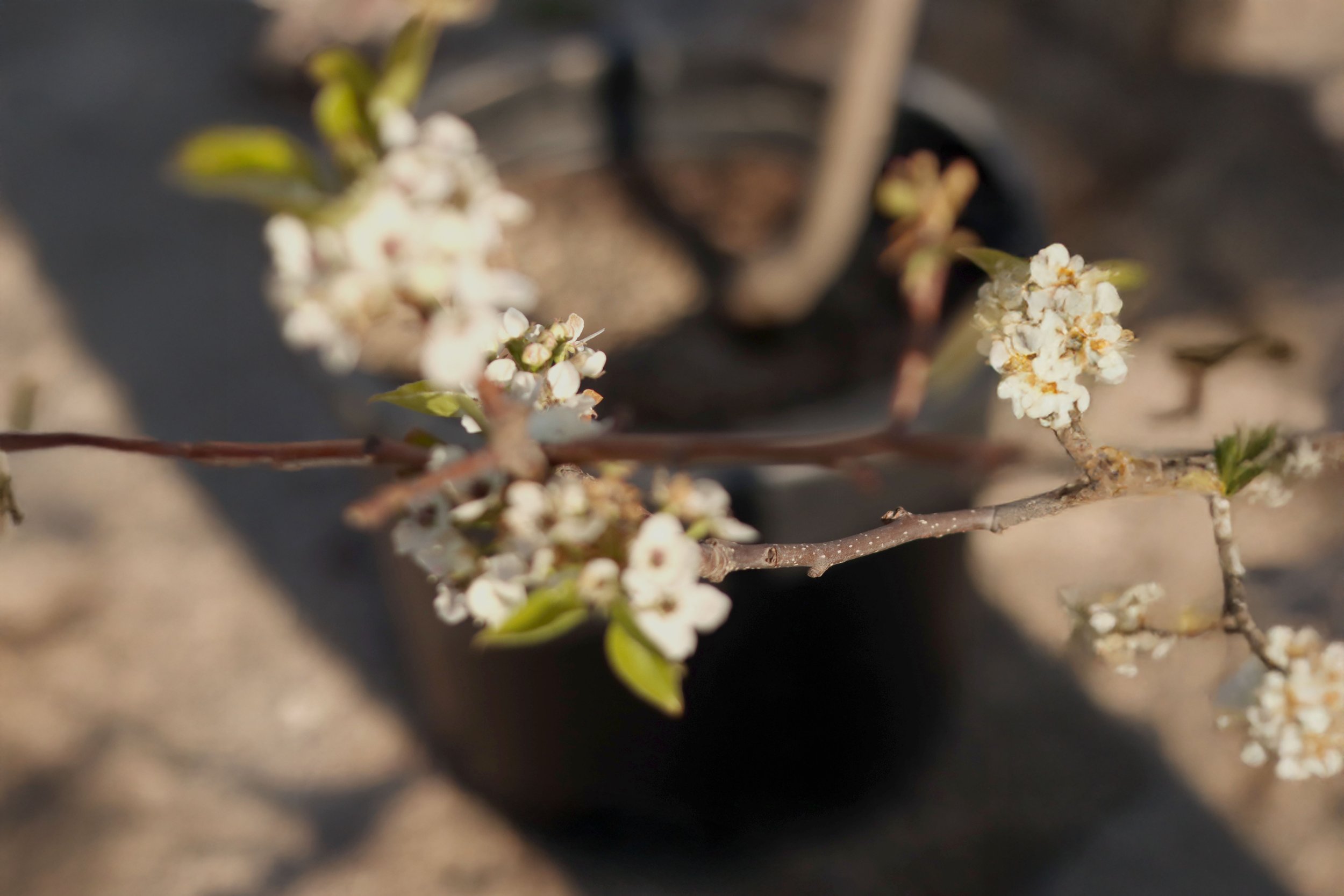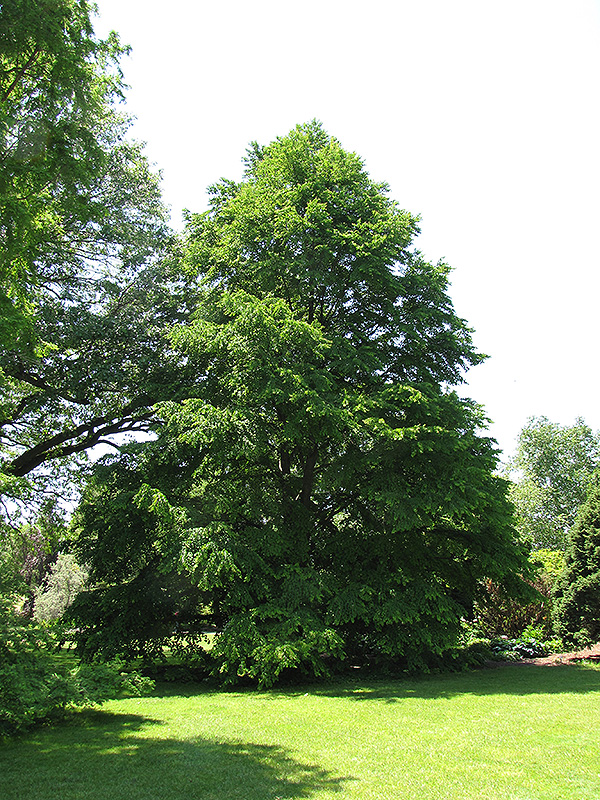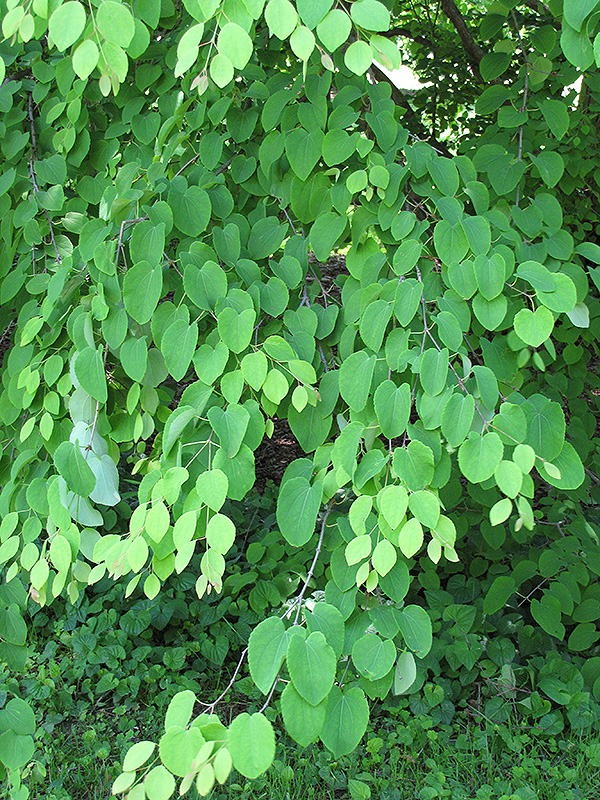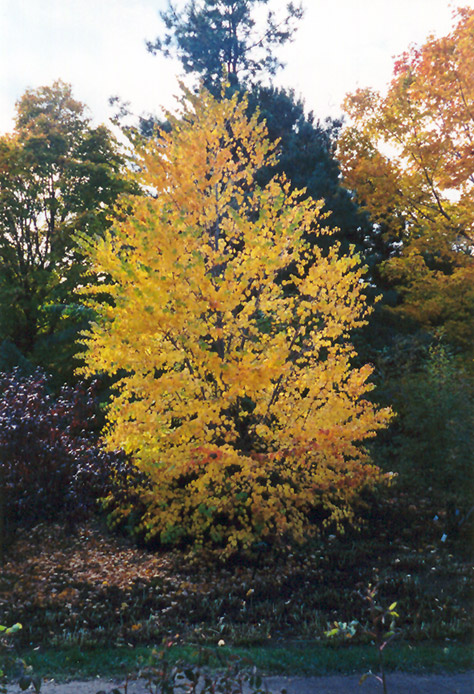
PLANT SEARCH
Height: 50 feet
Spread: 30 feet
Sunlight:
![]()
Hardiness Zone: 4
Description:
A truly refined tree with a tight pyramid shape and superb spring and fall foliage colors; very neat and tidy tree, good choice for larger home landscapes, can grow quite large; fallen leaves emit a delicious caramel fragrance in autumn
Ornamental Features
Katsura Tree is primarily valued in the landscape for its ornamental upright and spreading habit of growth. It has bluish-green deciduous foliage which emerges burgundy in spring. The heart-shaped leaves turn an outstanding orange in the fall. The shaggy brown bark adds an interesting dimension to the landscape.
Landscape Attributes
Katsura Tree is a dense deciduous tree with an upright spreading habit of growth. Its relatively fine texture sets it apart from other landscape plants with less refined foliage.
This is a relatively low maintenance tree, and is best pruned in late winter once the threat of extreme cold has passed. It has no significant negative characteristics.
Katsura Tree is recommended for the following landscape applications;
- Accent
- Shade
Planting & Growing
Katsura Tree will grow to be about 50 feet tall at maturity, with a spread of 30 feet. It has a high canopy with a typical clearance of 6 feet from the ground, and should not be planted underneath power lines. As it matures, the lower branches of this tree can be strategically removed to create a high enough canopy to support unobstructed human traffic underneath. It grows at a fast rate, and under ideal conditions can be expected to live for 60 years or more.
This tree should only be grown in full sunlight. It prefers to grow in average to moist conditions, and shouldn't be allowed to dry out. It is particular about its soil conditions, with a strong preference for rich, acidic soils. It is somewhat tolerant of urban pollution, and will benefit from being planted in a relatively sheltered location. This species is not originally from North America.



